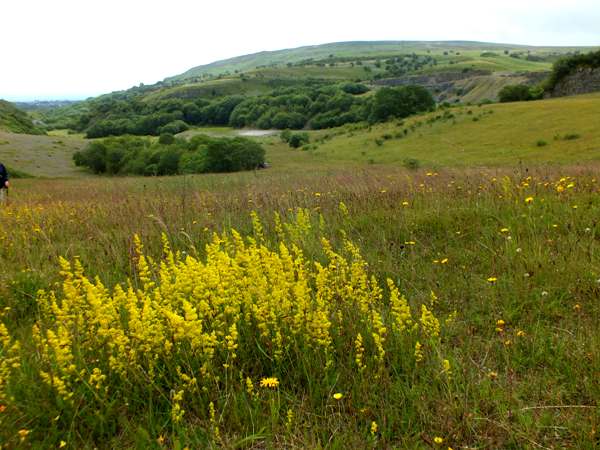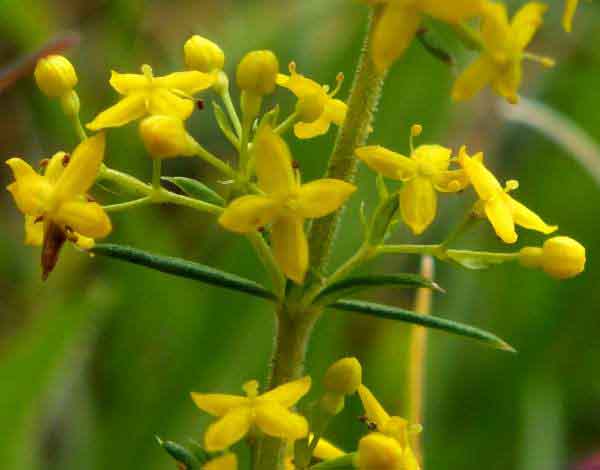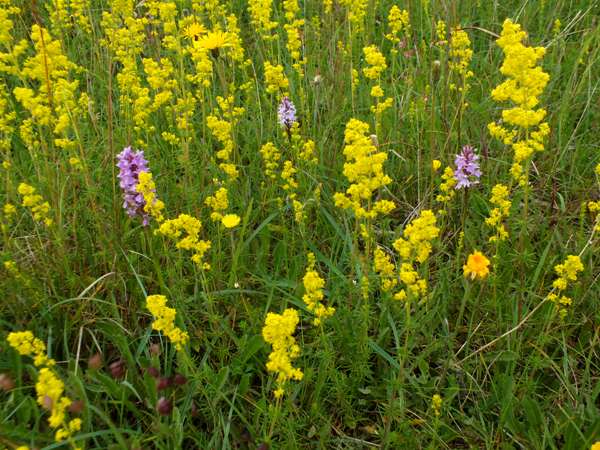Galium verum - Lady's Bedstraw
Phylum: Magnoliophyta - Class: Equisetopsida - Order: Gentianales - Family: Rubiaceae

Most other bedstraws have white flowers, so this yellow wildflower is very distinctive. The tiny four-petalled flowers are borne in frothy inflorescences at the tips of shoots, while the strap-like elongated oval leaves, 10 to 30mm long but only about 2mm across, are borne in whorls of 8 to 12 around the stems; they are dark green, smooth above but finely hairy on their undersides. Lady's Bedstraw can reach a height of a metre and occasionally more, but mostly the plants are much lower growing, typically between 10 and 30cm tall.
Description
Lady's Bedstraw is a scrambling perennial with four-petalled yellow flowers typically just 4mm across.
Distribution
Galium verum is common throughout Britain and Ireland and occurs in mainland Europe, including Slovenia, and in North Africa and Asia.

Habitat
Lady's Bedstraw often occurs in dry habitats, and so sand dunes are a good place to see it; however, we have also seen this plant beside wet flushes on coastal cliffs. This plant is also found in dry grasslands away from the coast.
Blooming Times
In Britain and Ireland the peak flowering period of Galium verum is July and August. (The flowers smell like honey when they are in full bloom and more like fresh hay when dried.)
Uses
This flower got its name from a use informer times: it was dried and used for making bedding. Another of its uses was in cheesemaking, where the flowers were added instead of renin to make the milk curdle.
Lady's bedstraw is an important source of food for caterpillars of the Broad-bordered Bee Hawk-moth.

Etymology
Galium, the genus name, comes from the Greek noun gala, meaning milk. It is a reference to the former use of flowers of various Galium species to help make milk coagulate during the process of making cheese. The specific epithet verum means true.
The photographs on this page were taken in Wales in July.
Sue Parker's latest ebook is a revised and enlarged edition of Wild Orchids in The Burren. Full details here...
Buy it for just £5.95 on Amazon...
Please Help Us: If you have found this information interesting and useful, please consider helping to keep First Nature online by making a small donation towards the web hosting and internet costs.
Any donations over and above the essential running costs will help support the conservation work of Plantlife, the Rivers Trust and charitable botanic gardens - as do author royalties and publisher proceeds from books by Pat and Sue.

